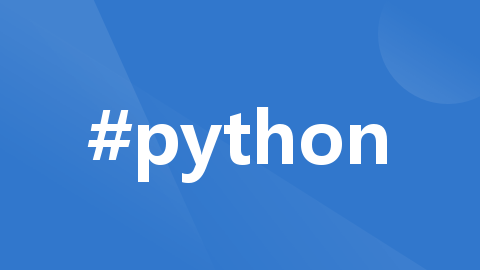
隐私计算python实现改进Paillier同态加密
【代码】隐私计算python实现改进Paillier同态加密。
·
"""
@Time : 2023/10/27 0027 15:37
@Auth : yeqc
"""
import random, sys
import gmpy2
from gmpy2 import f_div, mpz, mpz_urandomb, is_prime, random_state, invert, powmod, add, mul, f_mod
rand = random_state(random.randrange(sys.maxsize))
def generate_prime(bits):
"""generate an b-bit prime integer"""
while True:
possible = mpz(2) ** (bits - 1) + mpz_urandomb(rand, bits - 1)
if is_prime(possible):
return possible
# 这里的bits主要是针对n来说,pq应该为bits//2
def keyGeneration(bits):
"""
密钥生成
:param length: 二进制位数,默认128
:return: 公钥sk=n=pq,私钥sk=(λ, v),h用来解密阶段加密用
"""
# def generate_primes(length):
# """
# 获得两个大素数p、q
# :param length: 二进制位数
# :return: 大素数p和q
# """
# while True:
# p = gmpy2.next_prime(random.getrandbits(length)) # random.getrandbits(),随机获取length长度的二进制数
# q = gmpy2.next_prime(random.getrandbits(length)) # next_prime()获取下一个素数
# if gmpy2.gcd(p, q) == 1:
# return p, q
# step1:随机选择两个大素数p、q
# p, q = generate_primes(length)
p = generate_prime(bits // 2)
q = generate_prime(bits // 2)
# print(f'p = {p}')
# print(f'q = {q}')
# step2:计算n=pq,λ=lcm(p-1,q-1)
n = p * q
λ = gmpy2.lcm(p - 1, q - 1)
# step3:随机选择多个整数r,h=r^n mod n^2
# TODO:这里先随机选择一个
r = mpz(random.randint(1, n - 1))
# r = 1
h = powmod(r, n, n ** 2) # (base ** exponent) % modulus,其中 base 是底数,exponent 是指数,modulus 是模数。
# step4:引入秘密参数 v=λ^-1 mod n 即λ模n的逆元,λ * v % n = 1
v = invert(λ, n)
return n, λ, v, h
def encryption(m, n, h):
"""
加密阶段
:param m: 明文
:param n: 公钥
:param h: 密钥生成中的h,用来加密
:return: 密文c
"""
c = mul(add(mul(m, n), 1), h) # 密文
return c
def decryption(c, λ, n, v):
"""
解密阶段
:param c: 密文
:param λ: 私钥λ
:param n: 公钥
:param v: 私钥v
:return:
"""
x = powmod(c, λ, n ** 2)
L = f_div(x - 1, n)
de_m = f_mod(mul(v, L), n)
return de_m
def encryption_add(n, c1, c2):
"""Add one encrypted integer to another"""
return powmod(c1 * c2, 1, mul(n, n))
def encryption_add_const(n, m, c):
"""Add a constant to an encrypted integer"""
return mul(m,add(mul(c,n),1))
def encryption_mul_const(n, m, c):
"""Multiply an encrypted integer by a constant"""
return powmod(m, c, mul(n, n))
if __name__ == '__main__':
n, λ, v, h = keyGeneration(1024)
print(f'n = {n}')
print(f'λ = {λ}')
print(f'h = {h}')
print(f'v = {v}')
print('-------------------------加解密----------------------')
m = 30 # 明文
c = encryption(m, n, h) # 密文
print(f'明文m = {m}')
print(f'密文c = {c}')
de_m = decryption(c, λ, n, v)
print(f'解密明文de_m = {de_m}')
print('-------------------------同态加,密文乘=明文加----------------------')
m1, m2 = 10, 30
c1, c2 = encryption(m1, n, h), encryption(m2, n, h)
c1c2 = encryption_add(n, c1, c2)
de_mm = decryption(c1c2, λ, n, v)
print(f'解密明文 de_mm = {de_mm}')
print('-------------------------密文×常量----------------------')
const_c = 25
m3 = 40
c3 = encryption(m3, n, h)
c3const_c = encryption_mul_const(n, c3, const_c)
de_mm = decryption(c3const_c, λ, n, v)
print(f'解密明文 de_mm = {de_mm}')
print('-------------------------密文+常量----------------------')
c3_add_const_c = encryption_add_const(n, c3, const_c)
de_mm = decryption(c3_add_const_c, λ, n, v)
print(f'解密明文 de_mm = {de_mm}')

开放原子开发者工作坊旨在鼓励更多人参与开源活动,与志同道合的开发者们相互交流开发经验、分享开发心得、获取前沿技术趋势。工作坊有多种形式的开发者活动,如meetup、训练营等,主打技术交流,干货满满,真诚地邀请各位开发者共同参与!
更多推荐
 已为社区贡献4条内容
已为社区贡献4条内容





所有评论(0)